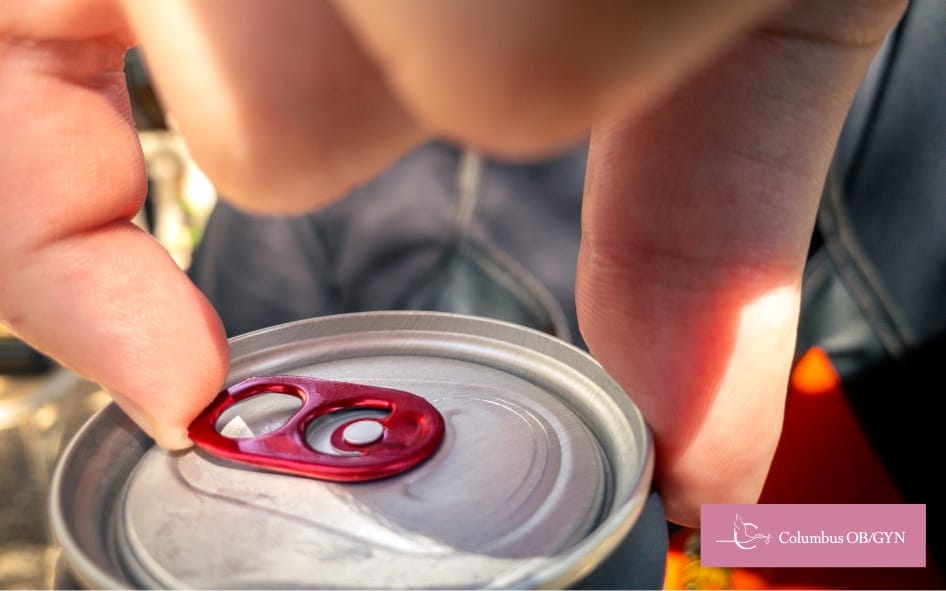
When you’re trying to conceive, every choice feels significant. That morning energy drink might seem harmless, but many couples wonder: “Can energy drinks cause infertility?” Unfortunately, yes—excessive energy drink consumption can impact fertility in both men and women.
It’s not definitive. And while the research is still developing, growing evidence suggests that high caffeine intake and other components in energy drinks may negatively affect reproductive health.
Here’s what couples need to know about this connection.
Energy drinks pack more than just caffeine. They’re loaded with sugar, taurine, and other stimulants that can disrupt your body’s hormonal balance. When conception is the goal, these lifestyle factors become crucial considerations.
A systematic review of fertility studies indicates that caffeine consumption above certain levels may interfere with conception. What makes energy drinks particularly concerning? They often contain significantly more caffeine than regular soft drinks or even multiple cups of coffee.

For men, the effects of caffeine on fertility are particularly striking.
Sperm Quality Takes a Hit
High caffeine consumption may reduce sperm quality, affecting sperm count, sperm motility, and sperm concentration. Men who consume multiple energy drinks daily often show decreased semen quality compared to those with moderate caffeine intake.
Disrupted Sperm Production
The central nervous system stimulation from energy drinks interferes with sperm production. The effect of caffeine on the reproductive system disrupts hormonal signals needed for healthy sperm development… potentially leading to male infertility.
Additional Metabolic Concerns
Energy drink consumption contributes to weight gain and insulin resistance, further impacting sperm health. These metabolic changes create a cascade of adverse effects on reproductive health.

Women face their own fertility challenges from energy drinks. The impacts are significant and often overlooked.
Menstrual Cycle Disruption
High caffeine intake can throw off menstrual cycles, causing irregular periods. This makes predicting ovulation and timing conception attempts much more difficult.
Ovulation Problems
Energy drink stimulants interfere with hormonal signals that regulate ovulation. This can lead to irregular ovulation patterns or prevent ovulation entirely.
Delayed Conception
Studies suggest women with high caffeine consumption experience longer delays in conception. The effect of caffeine on the female reproductive system creates an environment less favorable for conception and early pregnancy.
Metabolic Impact
Like men, women who consume energy drinks regularly may experience weight gain, insulin resistance, and metabolic syndrome—all factors that negatively impact fertility.
Giving up energy drinks doesn’t mean accepting constant fatigue. These alternatives provide sustainable energy without compromising fertility goals:
When trying to conceive, all lifestyle factors matter. While complete caffeine elimination isn’t necessary, moderation is key. Most fertility experts recommend limiting caffeine consumption to 200mg per day—roughly one 12-ounce cup of coffee.
Small changes can make a significant difference in your fertility journey. Lifestyle choices like reducing energy drink consumption and limiting alcohol consumption work together to create optimal conditions for conception.
Related Article: Can Birth Control Cause Infertility?
Current evidence suggests that excessive caffeine intake through energy drinks can negatively impact both male fertility and female fertility. The encouraging news? These effects are often reversible with lifestyle factor modifications.
For couples trying to conceive, limiting or eliminating energy drink consumption in favor of healthier alternatives is a smart move. Your reproductive health deserves better than a temporary energy boost.
Every fertility journey is unique. If you have concerns about caffeine intake or other lifestyle factors affecting conception, consulting with a healthcare provider—either an OBGYN or a Urologist—is essential. Together, you can create a personalized plan that supports reproductive goals while maintaining overall health and well-being.
Taking care of fertility doesn’t mean giving up everything enjoyable—it means making informed choices that support the dream of starting or expanding your family.